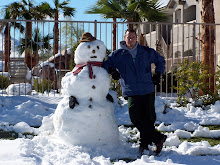Flowing from a selfless love for fellow man, deeply rooted in Christian tradition, charity is reflected in taking a personal interest in the well-being of our neighbors. It requires hands on participation, getting down into the muck to help the guttersnipe lift himself up.
Charity does not enable bad habits or unproductive lifestyle choices. It does not feed sloth and indifference, nor does it encourage irresponsible behavior.
Charity cannot be accomplished through a nameless, faceless bureaucracy. Compassion is at the very heart of charity and a bureaucracy is incapable of compassion. Government run "charity" is little more than a copout, an attempt on the part of the complacent to delegate a messy task that requires getting uncomfortable, that requires getting to know smelly, squalid, filthy little poor people. Expecting the government to do our charity for us is like putting a child up for adoption because we don't like changing diapers.
The society that tries to tax its way to charity accomplishes little more than building a wall between the well-to-do and the huddled masses. It creates a false sense of compassion among the mainstream and a destructive sense of entitlement among the indigent.
Perhaps ironically, if America tries to empower the government to control our charitable mechanisms, we the people may lose interest in being charitable ourselves.
So do not talk to me of the need for government intervention. Do not ask me to support taxing anyone so that we can hire more bureaucrats to oversee entitlements, welfare or otherwise. Instead, let's talk about how we can encourage those who have been blessed to share with those who struggle. Instead of filing the paperwork and cutting through redtape in order to empower someone else to do it for us, let's talk about developing real communities.
Without community, charity is meaningless. Giving someone charity while permitting them to remain outside of community is more like a guilt-offering than charity.
Sunday, May 22, 2011
Subscribe to:
Comments (Atom)



